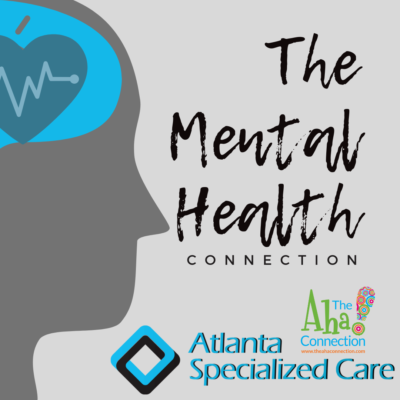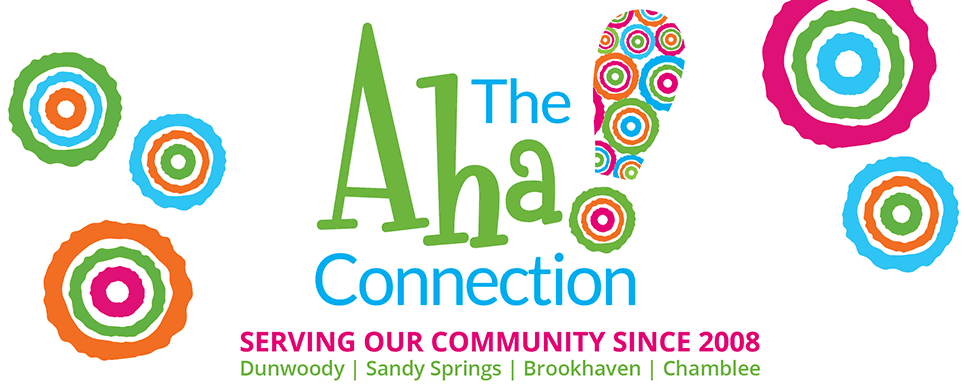 by Katie Butler APRN of Atlanta Specialized Care for The Aha! Connection
by Katie Butler APRN of Atlanta Specialized Care for The Aha! Connection
One of my favorite phrases is “storms don’t last forever.” Life presents challenges that can impact our day-to-day functioning. These ups and downs should be transient. But if mood changes persist, anxiety is overwhelming, or attention and focus is poor, psychotropic medications should be considered. Psychotropic medications include antidepressants, antianxiety medications, atypical antipsychotics ( bipolar, schizophrenia and depression), stimulants (ADHD), and mood stabilizers (bipolar and mood swings). Symptoms of depression include feelings of hopelessness, worthlessness and helplessness often accompanied by a change in appetite, sleep, and energy level. Anxiety is an overwhelming sense of nervousness. A little anxiety can make you more alert but if too high, can be debilitating. It can also manifest as physical symptoms including stomach upset, increase in heart rate or dizziness. It is important to rule out medical causes with a primary care provider. Extreme anger or mood swings can indicate bipolar disorder. It is normal to have these symptoms on occasion; if they are persistent and affect one’s relationships and ability to function, it is time to consider medications. Therapy is recommended in addition to medications and increases the likelihood of success.
When deciding on a medication, I take into account family history of mental illness (has a parent or sibling done well on certain medication) and current symptoms. Many medication options exist. If someone feels tired during the day, a more activating medication may be effective. But if insomnia is a problem, a more sedating medication could be beneficial. The goal of medication is to help an individual feel normal and shouldn’t blunt or numb one’s feelings. If a negative side effect is experienced with one medication, another medication in the same class or a different class might be an alternative. Any side effects after the initiation of a new medication should be mild and transient. Most medications take about 4 weeks to become fully therapeutic, but an improvement should be noticed by week 2. Medications are not a life sentence. The literature recommends getting stable and remaining on medication for 9 to 12 months. Then at this time, if doing well, a medication wean can be discussed. Often, with therapy in conjunction with medication for 1 year, a person may develop better coping skills and reach a point where medication is no longer needed.
We inherit a genetic predisposition to certain illnesses, including psychiatric disorders, diabetes, or hypertension. Lifestyle modifications, such as exercise and a healthy diet, can improve these conditions and decrease the need for medications. Sometimes, these changes are not enough. Depression, for example, cannot be cured with diet and exercise if it is a chemical imbalance. There are no long-term side effects with most psychiatric medications. Atypical antipsychotics can cause metabolic changes so blood sugar and triglycerides need to be monitored. We know that untreated mood disorders can have a negative impact on the immune system and cause elevation in stress hormones. Also, untreated individuals with ADHD are more likely to have job, relationship problems and issues with substance abuse. Therefore, the benefits of medications often outweigh possible disadvantages. I encourage you to have a discussion with your provider about the pros cons of psychotropic medications. Clients often tell me they regret not having tried medication sooner, not that they regret having tried medication. It could be a game changer!

As an Advanced Psychiatric Nurse Practitioner, Katie Butler specializes in prescribing and managing medication for clients with anxiety, depression, mood disorders, ADHD, and substance abuse.
Since receiving her Family Nurse Practitioner degree (Summa cum Laude) from Georgia State University, Katie has worked in a variety of settings including Augusta’s VA hospital, in pediatric oncology, and in private practice.
Katie grew up in Sandy Spring and is married with two grown children. As a former collegiate athlete, running both cross country and track at SMU, Katie stays active with traveling and hiking. She slows down with a book or engaging in her yoga practice, and she is certified to teach yoga as well as Yoga of 12-steps.






